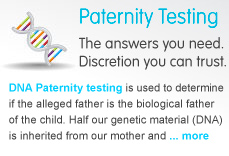






Alpha-actinin 3 (ACTN3) is one of a family of actin genes and together with ACTN2 is one of the myofibrillar proteins located at the Z-disk. ACTN3 is expressed in a subset of type 2, fast twitch, muscle fibres. A number of studies showed that a common non-sense mutation that results in stop codon replacing arginine at position 577, will affect athletic performance in different ways. The frequency of homozygous individuals with the mutation in European populations is estimated to be of approximately 18%.
Effects of R577X Variant A study in Olympian athletes [1] showed that:
- The null mutation was found at a very low frequency in sprint athletes
when compared to population. No female athletes were observed to have
the null mutation. - Endurance athletes had a slightly higher incidence of the null mutation.
Another study [2] showed that the null mutation is of an advantage for women to develop a dynamic muscular strength in reponse to progressive resistance training. This mutation had a negative effect to produce high force isometric strength in women. No differential effects were observed in males.
Test Methodology
DNA is extracted from peripheral blood and the region of the ACTN3 gene is amplified by PCR. Testing is done by RFLP and confirmed by direct DNA sequencing.
Sample Requirements
a) Peripheral whole blood collected by venipuncture in an EDTA container. Please send the sample to the laboratory at ambient temperature. Alternatively –
b) A buccal swab can also be sent for testing. This is a non-invasive procedure and the sample can be sent in an envelop to the laboratory. We can send a free testing kit upon request.
Benefits from Test
Knowing the athlete's genetic makeup will help in personal training. Training can be addressed to improve the athlete's genetic potential and to overcome its weaknesses.
The results can help to determine which type of sports you will be most likely to succeed.
It is important to note that genetics are only a part of the success story of an athlete and importance should be given to proper nutrition, training and all the other aspects of sports.
References
[1] Yang N., MacArthur DG., Gulbin JB. ACTN3 genotype is associated with human elite athletic performance. (2003)American Journal of Human Genetics 73: 627 - 631. [2] Clarkson PM., Devaney JM., Gordish-Dressman H. ACTN3 genotype is associated in muscle strength in response to resistance training in women. (2005) Journal of Applied Physiology 99: 154 - 163.










